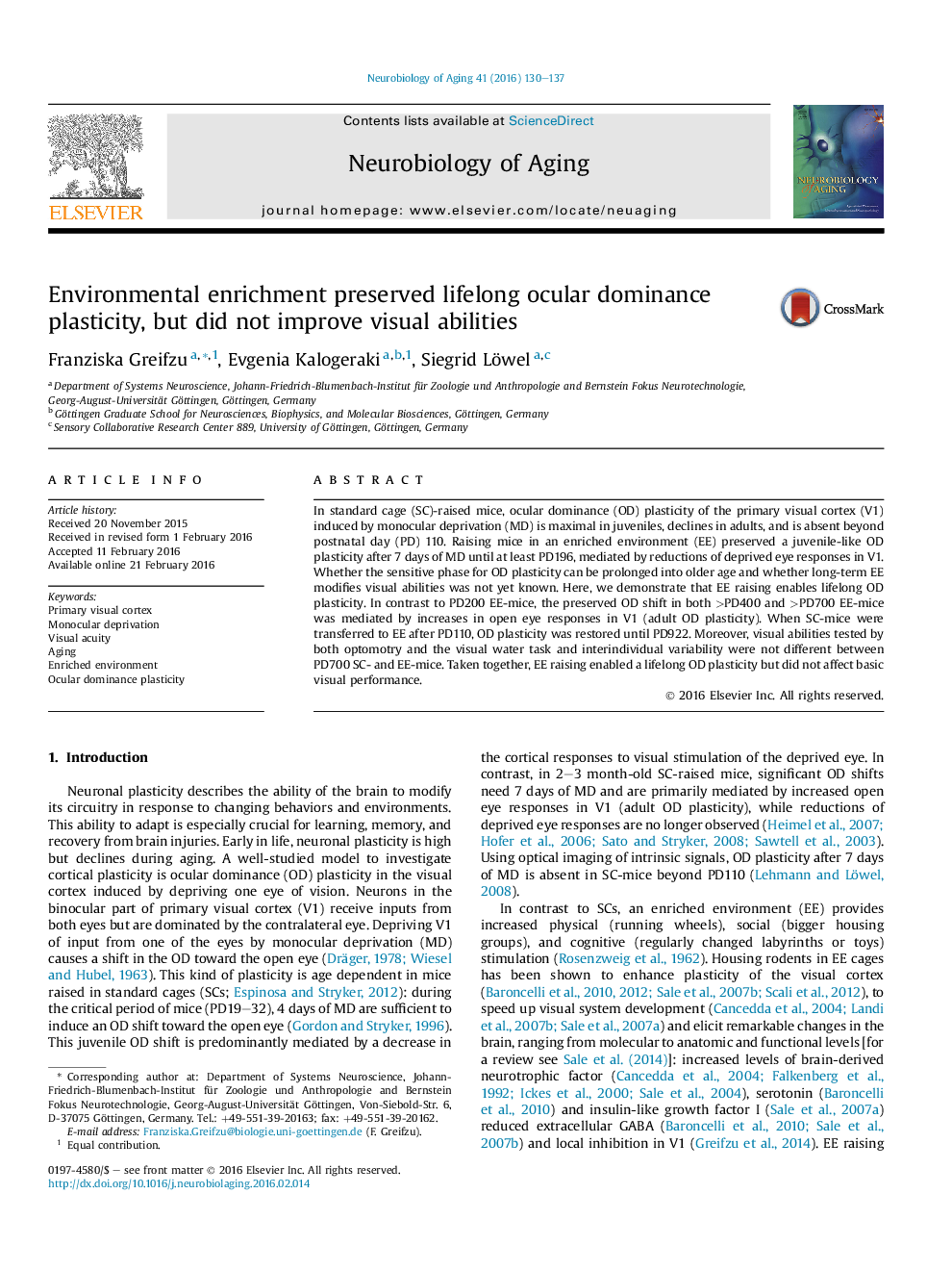| Article ID | Journal | Published Year | Pages | File Type |
|---|---|---|---|---|
| 6803497 | Neurobiology of Aging | 2016 | 8 Pages |
Abstract
In standard cage (SC)-raised mice, ocular dominance (OD) plasticity of the primary visual cortex (V1) induced by monocular deprivation (MD) is maximal in juveniles, declines in adults, and is absent beyond postnatal day (PD) 110. Raising mice in an enriched environment (EE) preserved a juvenile-like OD plasticity after 7Â days of MD until at least PD196, mediated by reductions of deprived eye responses in V1. Whether the sensitive phase for OD plasticity can be prolonged into older age and whether long-term EE modifies visual abilities was not yet known. Here, we demonstrate that EE raising enables lifelong OD plasticity. In contrast to PD200 EE-mice, the preserved OD shift in both >PD400 and >PD700 EE-mice was mediated by increases in open eye responses in V1 (adult OD plasticity). When SC-mice were transferred to EE after PD110, OD plasticity was restored until PD922. Moreover, visual abilities tested by both optomotry and the visual water task and interindividual variability were not different between PD700 SC- and EE-mice. Taken together, EE raising enabled a lifelong OD plasticity but did not affect basic visual performance.
Keywords
Related Topics
Life Sciences
Biochemistry, Genetics and Molecular Biology
Ageing
Authors
Franziska Greifzu, Evgenia Kalogeraki, Siegrid Löwel,
